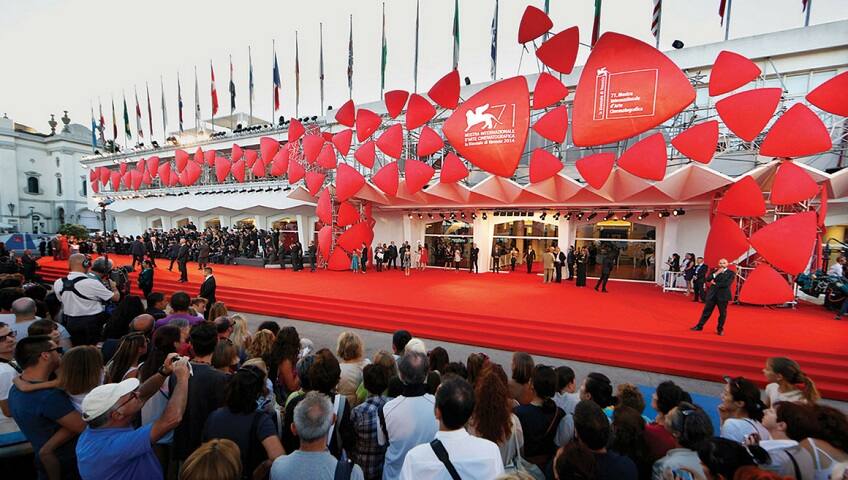At the Venice Film Festival, this year, I ran into Peter Bradshaw, chief film critic at The Guardian. We were in line for a press screening, and we were generally chatting about the films we liked and disliked. The topic shifted to the nature of film festivals, and he said, “It used to be a gentlemanly thing. You saw a lot of films. At the end, you wrote a couple of impressionistic pieces. Now, it’s so different. Every film you watch, you have to write a full-fledged review at once. It’s about star ratings and clicks…” It wasn’t a complaint so much as an observation. He laughed that there was no point whingeing about it, for this – being a film critic, covering a major international film festival – is a job profile many people would give a vital body organ for. And yet… [caption id=“attachment_5175371” align=“alignnone” width=“848”]  Venice International Film Festival 2018. Twitter[/caption] I saw 22 films over nine days. This is not normal or natural, and this is certainly not the way one watches films. There’s barely any time after a screening to absorb, bask, reflect… And worse, between three films a day, you’re also dashing off pieces, hoping that Malcolm Gladwell bloody well knew what he was talking about when he posited the 10,000-hour rule, that all these years on the job are going to ensure that there’s at least a base level of quality in the piece, in terms of both the writing itself and the insights. (There are those that dash off quick, little pieces, just to ensure they are filing stories on a daily basis – I am not talking about them.) I attended three international film festivals this year – at Berlin, Cannes and Venice – and feel this way. I cannot imagine how those globe-trotting journalists, whose only job is to cover festivals, deal with it. So why do I put myself through this grind? One, of course, is that it’s undeniably exciting to be among the first in the world watching the best of international cinema – or at least, the most anticipated films – without any kind of buzz. No celebrities have watched special shows, and they’re not gushing over the film on Twitter. Even though advance screenings are sometimes held – from this year’s line-up at Venice, Alfonso Cuarón’s _Roma_ and Bradley Cooper’s _A Star is Born_ were shown in New York to the local critics – no advance reviews have been published (especially with the new embargo rules at festivals). This is truly the closest you can get to a blank slate. And this makes writing about the films very interesting – because you are “competing” not just with Indian journalists but with some of the best critics and writers from across the world. After writing my piece on a film, I always make it a point to read what others have written. This isn’t to see whether I am in the majority or minority (when it comes to the opinion on the film), but to see if I’ve noticed some of the things they have, or if there are things I have written about that they haven’t. (The latter is a special thrill.) After some 15 years of being a critic, you begin to wonder if you still have it, if you are still… relevant. Writing at festivals is a great way to reassure yourself (even if, given the deadlines, you are going to be much more critical about your pieces than you usually are). Apart from seeing great movies, there is the opportunity to watch panel discussions (though, these days, many of these crop up on YouTube). You get to network with critics from all over. Best of all, you get to see these films with no distractions. This is important if you are from India, where – unless you have a local film festival that plays these films – the only way you’ll get to watch them is at home, on a streaming platform (or through other means we shall not get into here). There’s always going to be a call to attend to, a crisis to avert… Plus, there is the size of the screen. Even on the biggest-screen TV, the Roma you see won’t be the Roma I saw at Venice, on a huge screen, with every shimmering image seen the way it was meant to be (yes, despite the irony that it’s a Netflix movie). There’s another consideration for a critic from India. This exposure, this concentrated immersion into international art-house cinema, is an invaluable respite from watching Hindi and Tamil films (in my case) week in, week out. It helps you snap out of these rhythms. It clears the palate. It refreshes you, though the reverse is also true. You cannot keep watching international art-house cinema all the time, if you want to (meaningfully) review Indian cinema. You need to be rooted in this soil, too. A film-festival binge, then, is like a working vacation, the equivalent of an assignment abroad – it blows away the cobwebs in the head. Despite the occasional complaint – and it is hard work, no doubt – it’s a privilege to attend film festivals, write about these films. Not many, I am told, read these pieces, compared to the numbers for Indian reviews. But it doesn’t matter. You do that for them. You do this for you. Baradwaj Rangan is editor, Film Companion (south).
It’s undeniably exciting to be among the first in the world watching the best of international cinema – or at least, the most anticipated films – without any kind of buzz
Advertisement
End of Article


)
)
)
)
)
)
)
)
)



